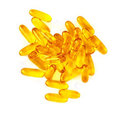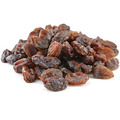Do you suffer from Seasonal Affective Disorder?
We all feel a little down when the weather’s cold and the nights are long. But for one in 10 of us winter can trigger serious depression, known as seasonal affective disorder. Rachel Eaton investigates

For most of us, winter conjures up images of crisp, bright days and cosy nights snuggled round the fire with a glass of mulled wine. But for more than half a million people in the UK, the end of autumn signals the onset of a severe depression that will last for five months until the arrival of spring. According to seasonal affective disorder (SAD) expert Dr Lance Workman, a biopsychologist at Bath Spa University, the cause is a biochemical imbalance in the hypothalamus of the brain, due to shorter daylight hours and lack of sunlight.
"The official figures, which state that only 10 per cent of the population are affected, wildly underestimate the reaches of SAD," says Dr Workman. "I believe that around 40 million people (at least two-thirds of all British people) are affected by the condition, with one per cent actually becoming suicidal.
"It's a lethargic form of depression. Sufferers have no energy, low self-esteem, crave sugary foods and experience anhedonia - a lack of enjoyment in usually pleasurable activities. These SAD sufferers are often hyper in the summer months and the sort of people you'd describe as being ‘consistently happy'."
The hypothalamus of your brain registers light entering your eyes and secretes hormones accordingly. The mood-enhancing happy hormone serotonin is released in response to sunlight, while sleep-inducing melatonin is released in response to darkness. For SAD sufferers, the fall in serotonin and rise in melatonin have a particularly marked effect on their mood, leaving them depressed, lethargic and tetchy. In 1994, a Russian study confirmed that SAD sufferers do indeed have abnormally high levels of melatonin during the daytime in winter, which explains their feelings of constant exhaustion and lethargy.
"In evolutionary terms, our brains work this way so we can slow down in the winter when it's cold and there's less food around - it's a form of hibernation", explains Dr Workman. "But our needs and lifestyles have changed and many people are unable to keep up with the pace of modern life during the winter. The good news is now we know what causes it, we can successfully treat it.
Ways to beat SAD
5-HTP
'Even if you just get the winter blues, you can boost your mood with your diet,' explains medical nutritioniast Naomi Beinart (www.beinart-nutrition.co.uk). ‘Tryptophan boosts production of the happy hormone serotonin. Try tryptophan-rich foods such as chicken, turkey, fresh tuna, tofu, soya, potatoes, bananas and dairy, and take 100mg 5-HTP twice a day.' Solgar's 5-HTP is £9.95 for 30 capsules (www.solgar-vitamins.co.uk, 01442 890355).
Light therapy
"Getting out into the daylight in winter is vital," says Dr Workman. "Light therapy, where the patient sits in front of a high lux light, works for 80 to 85% of sufferers." The hypothalamus in the brain reacts to the light as if it is daylight and produces serotonin, which lifts your mood. Lumie, manufacturer of light boxes, suggests you start by using a light box daily, for between 30 minutes and two hours. Light boxes cost from around £135 (John Lewis, Boots, www.lumie.com).
Hypnotherapy
During treatment, a hypnotherapist helps patients to realise that SAD is a totally natural condition that can be controlled. Then motivational hypnosis is used to improve mood and boost positive thinking. Around eight to 10 sessions (costing between £60 to £100 per session) are usually required to treat SAD, depression or negative thinking.
Find a qualified hypotherapist at www.general-hypnotherapy-register.com.
For more information or support for SAD sufferers, visit www.sada.org.uk.
You might also like...
Top 10 cheer-me-up remedies
Are antidepressants the answer?
Beat the blues with the winter vitality diet










